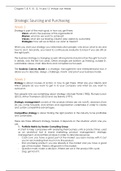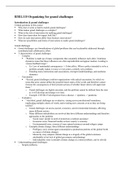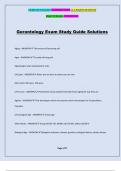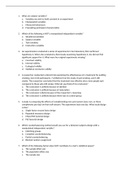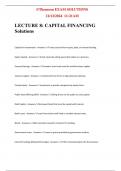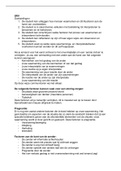Lecture 1
Sugar: used to be luxury product that you could only find in the court. : the sculpture made
out of sugar, the king's party that use a lot of sugar…: to show off the richness and power
of men.
It has become ordinary after the colonization, and the more production route expanded in
the colonies to cultivate sugar in the mass quantity.
In 18th 19tth, it became the substance for the proletariat.
● Slavery that people getting transported involuntarily by Europeans from Africa to the
certain Caribbean states, who had to work on the sugar plantations… was significantly
related not just to the consumption to the Europe, but also to the industrial revolution to
some extent, the fate of the workers at the time.
○ The types of interdependencies between people across different parts of globe:
the discussion the Erich Wolf gave.
● Sugar is embedded in the history of global power relations.
1. Critical to the anthropology.
2. Marxist way to see the global relation in anthropology, economics, and sociology
3. Contemporary relevance.
4 takeaways
1. Critique of western-centered historical narrative of progress & modernization
1. History has been taught throughout Europe (civilization progression, dark middle
ages enlightenment, modern democracies, modernity)… are Eurocentric. Rest of
the world are left.
2. Sociology and anthropology have produced and legitimated these narratives.
1. Think of all the stories and histories of modernization sin the classical
sociological theory… modernization theories such as weber, Durkheim… but the
histories are Eurocentric basically
2. Same goes for anthropologists : "primitive people" used to be invoked a long
time. Primitive people as the ones who did not go through such a modernization
process… but may still have the different trajectories. Rest of he world were
described as "other" "non-developed" "primitive", etc.
1. These academics legitimized the Eurocentric narratives
1. To do it differently, these narratives should be decentered and replaced by
narratives which emphasize global interconnections.
, 1. Decentered the narratives can be done by replacing with the narratives which
emphasize the all kinds go global interconnection
1. E.g. Sugar… Industrial revolution cannot be seen as separate from the
colonization and slavery in the Caribbean.
2. The wealth of the city like Amsterdam cannot be understood without
understanding those global interconnection and the history of colonies
taken into account.
1. It is not only the direct connection. We should look in the broader
scale of what was happening at the same time in the rest of the
world.
3. This text is also about the critiques of the methodological nationalism: the
idea that you make sense sociologically by focusing on nations…. Can be
utterly wrong methodology, Wolf concern.
1. We are not seeing the different societies as interconnected, but
rather the isolated entities.
1. In doing so, those global interconnections are frequently shaped by the expansion
of capitalism and global power relations that came with this expansion
1. You have to recognize the global interconnection, which is frequently shaped by
the expansion of capitalism and the global power relationship came along with
the expansion.
2. By "discovery" (the primary western-centric word of history. As if the rest of the
world did not exist until thee European found the land) of the world.
If you think about the last one : taking into account of the global relationships and
expansion of capitalism, he lecturer also thinks that this text by Wolf provides the
inspiration to think about those types of global interaction that are still existing nowadays.
● How we consume rituals, cultural products that we engage in… always involve the
interrelation.
○ Gives us the hint to think about the contemporary global interrelations.
Definition of globalization
● Guillen.
Complexity o globalization debate
● Main : globalization in academic and also public debates..
○ The term is used all the time in the academic and public discourses. But if you
look at it closely, the ways of the discourses are really different.
■ What types of the definition ?
● The book is about: the lack of consensus in globalization debate. Open and the
complex debates with different positions by the authors. The different positions, and why
would they take different positions… explained.
● Decomposing the debates into thee separate debates.
, This week’s learning goals
•Familiarity with & understanding of different definitions of globalization (this lecture &
text by Guillen)
•Awareness of complexity of globalization debate and contested nature of many
positions within this debate (this lecture & text by Guillen)
•Critical approach of European/North American-centered accounts of globalization
(Wolf)
•Identification of global interrelations between seemingly unrelated phenomena in
center vs periphery / global north vs global south (Wolf, tutorial group meeting)
1 data used in the book are outdated.
● E.g.. table about the tourism (increase)
● In the recent data, there is striking increase in the tourist arrivals.
○ Until 1980s to 90s, the Europe was predominant as the destination of the
tourism. But recently, other countries (especially Asia) become attractive tourism
destinations.
, ● Another economic figure
○ Relation of the GDP and the international trade.
■ Increasing number in last 50 years.
■ GDP of More than half of the nations are related to the international
trades.
■ But you also see the stable trend. And in the corona time, thee
globalization is getting reverse.. Deglobalization
■ In the time of corona, they realized how much they are dependent
on the other countries for the productions of the essential
resources.
2 European/North American-centered
“One
could argue that globalization begins with the dawn of history. The literature,
however, has tended to date the start of globalization more recently in the experience of
the West. At one end of the spectrum, historians have noted the importance of the first
circumnavigation of the Earth in 1519-1521” (p. 237)
● No critiques of the starting with the experience of the west.
● Even before the discovery by thee European, there were empires and civilization
in the other countries.
3 Emphasis on socio-economic & political issues
● Globalization in culture is not really explained here.
4 Does not really do justice to its title
● Here is not much about the "civilization" concept.
● Little about the destructive nature of the globalization.
○ Ecological , social… not explained.
Sugar: used to be luxury product that you could only find in the court. : the sculpture made
out of sugar, the king's party that use a lot of sugar…: to show off the richness and power
of men.
It has become ordinary after the colonization, and the more production route expanded in
the colonies to cultivate sugar in the mass quantity.
In 18th 19tth, it became the substance for the proletariat.
● Slavery that people getting transported involuntarily by Europeans from Africa to the
certain Caribbean states, who had to work on the sugar plantations… was significantly
related not just to the consumption to the Europe, but also to the industrial revolution to
some extent, the fate of the workers at the time.
○ The types of interdependencies between people across different parts of globe:
the discussion the Erich Wolf gave.
● Sugar is embedded in the history of global power relations.
1. Critical to the anthropology.
2. Marxist way to see the global relation in anthropology, economics, and sociology
3. Contemporary relevance.
4 takeaways
1. Critique of western-centered historical narrative of progress & modernization
1. History has been taught throughout Europe (civilization progression, dark middle
ages enlightenment, modern democracies, modernity)… are Eurocentric. Rest of
the world are left.
2. Sociology and anthropology have produced and legitimated these narratives.
1. Think of all the stories and histories of modernization sin the classical
sociological theory… modernization theories such as weber, Durkheim… but the
histories are Eurocentric basically
2. Same goes for anthropologists : "primitive people" used to be invoked a long
time. Primitive people as the ones who did not go through such a modernization
process… but may still have the different trajectories. Rest of he world were
described as "other" "non-developed" "primitive", etc.
1. These academics legitimized the Eurocentric narratives
1. To do it differently, these narratives should be decentered and replaced by
narratives which emphasize global interconnections.
, 1. Decentered the narratives can be done by replacing with the narratives which
emphasize the all kinds go global interconnection
1. E.g. Sugar… Industrial revolution cannot be seen as separate from the
colonization and slavery in the Caribbean.
2. The wealth of the city like Amsterdam cannot be understood without
understanding those global interconnection and the history of colonies
taken into account.
1. It is not only the direct connection. We should look in the broader
scale of what was happening at the same time in the rest of the
world.
3. This text is also about the critiques of the methodological nationalism: the
idea that you make sense sociologically by focusing on nations…. Can be
utterly wrong methodology, Wolf concern.
1. We are not seeing the different societies as interconnected, but
rather the isolated entities.
1. In doing so, those global interconnections are frequently shaped by the expansion
of capitalism and global power relations that came with this expansion
1. You have to recognize the global interconnection, which is frequently shaped by
the expansion of capitalism and the global power relationship came along with
the expansion.
2. By "discovery" (the primary western-centric word of history. As if the rest of the
world did not exist until thee European found the land) of the world.
If you think about the last one : taking into account of the global relationships and
expansion of capitalism, he lecturer also thinks that this text by Wolf provides the
inspiration to think about those types of global interaction that are still existing nowadays.
● How we consume rituals, cultural products that we engage in… always involve the
interrelation.
○ Gives us the hint to think about the contemporary global interrelations.
Definition of globalization
● Guillen.
Complexity o globalization debate
● Main : globalization in academic and also public debates..
○ The term is used all the time in the academic and public discourses. But if you
look at it closely, the ways of the discourses are really different.
■ What types of the definition ?
● The book is about: the lack of consensus in globalization debate. Open and the
complex debates with different positions by the authors. The different positions, and why
would they take different positions… explained.
● Decomposing the debates into thee separate debates.
, This week’s learning goals
•Familiarity with & understanding of different definitions of globalization (this lecture &
text by Guillen)
•Awareness of complexity of globalization debate and contested nature of many
positions within this debate (this lecture & text by Guillen)
•Critical approach of European/North American-centered accounts of globalization
(Wolf)
•Identification of global interrelations between seemingly unrelated phenomena in
center vs periphery / global north vs global south (Wolf, tutorial group meeting)
1 data used in the book are outdated.
● E.g.. table about the tourism (increase)
● In the recent data, there is striking increase in the tourist arrivals.
○ Until 1980s to 90s, the Europe was predominant as the destination of the
tourism. But recently, other countries (especially Asia) become attractive tourism
destinations.
, ● Another economic figure
○ Relation of the GDP and the international trade.
■ Increasing number in last 50 years.
■ GDP of More than half of the nations are related to the international
trades.
■ But you also see the stable trend. And in the corona time, thee
globalization is getting reverse.. Deglobalization
■ In the time of corona, they realized how much they are dependent
on the other countries for the productions of the essential
resources.
2 European/North American-centered
“One
could argue that globalization begins with the dawn of history. The literature,
however, has tended to date the start of globalization more recently in the experience of
the West. At one end of the spectrum, historians have noted the importance of the first
circumnavigation of the Earth in 1519-1521” (p. 237)
● No critiques of the starting with the experience of the west.
● Even before the discovery by thee European, there were empires and civilization
in the other countries.
3 Emphasis on socio-economic & political issues
● Globalization in culture is not really explained here.
4 Does not really do justice to its title
● Here is not much about the "civilization" concept.
● Little about the destructive nature of the globalization.
○ Ecological , social… not explained.



